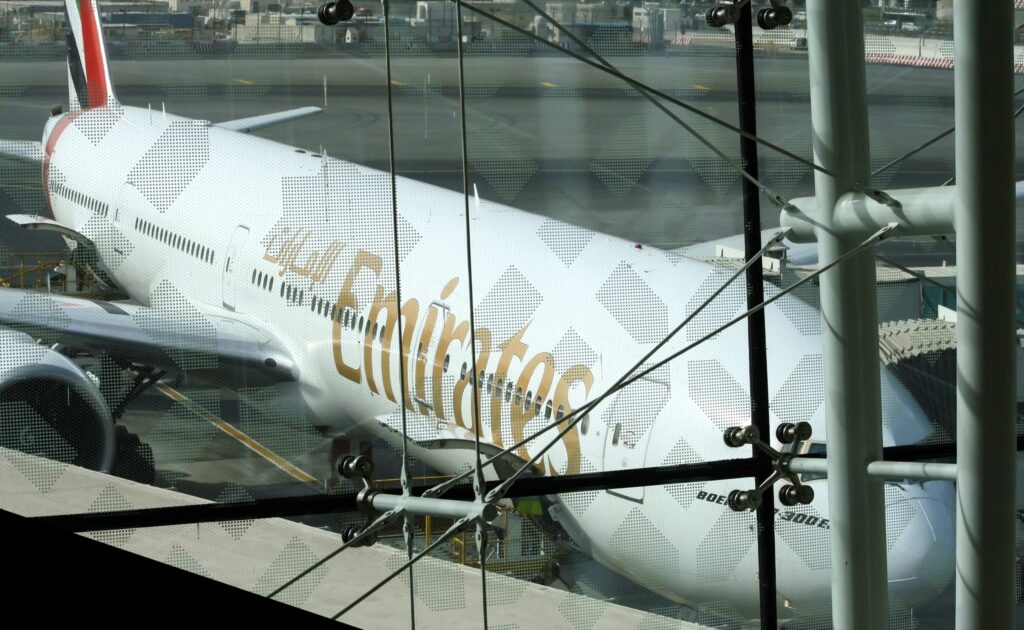Nigeria is set to release $120 million of foreign airlines’ ticket revenues, reducing the outstanding debt owed to international airlines operating in the country.
During a meeting with aviation industry representatives on October 24, 2022, Godwin Emefiele, Governor of the Central Bank of Nigeria (CBN), announced that an amount of $120 million will be released on October 31, 2022, according to a Premium Times report.
The fresh amount of $120 million comes after the central bank resolved to release $265 million to foreign airlines, starting from August 27, 2022.
Tensions have been high in Nigeria over the issue, with major carriers saying they will reduce services to the country unless funds were released. Emefiele accused airlines of blackmailing Nigeria and said countries should allow more flights by Nigerian carriers.
Samson Fatokun, a representative of IATA and also present at the meeting on October 24, 2022, stated that up to $700 million was still trapped in Nigeria, however.
“What we have right now is $700 million. Our balance is $700 million,” said Fatokun, according to the Premium Times report, saying that airlines were being “reasonable” in asking for a plan for the funds to be repatriated.
The CBN’s Emefiele explained that the first $265 million comprised of $110 million, which was allocated on the spot and the remainder in a period of 60 days.
“On that day, we allocated to IATA; $32 million through UBA. Qatar Airways; $22.8 million through Standard Chartered, Emirates; $19.6 million through Access Bank, British Airway; $5.5 million through GTB, Virgin Atlantic; $4.8 million through Zenith and others,” said Emefiele according to the Premium Times report.
Nigeria calls “ceasefire” on flight suspensions
In a statement, the House of Representatives of the Federal Republic of Nigeria confirmed that an understanding had been reached during the October 24 meeting to resolve the issue of trapped funds, with payments in phases until the end of December 2022.
“We are here to protect you and at the same time uphold the integrity of Nigeria. Give us a couple of months to see what we can do to reduce the backlog with the help of the CBN,” said Femi Gbajaniamila, Speaker of the House of Representatives in the statement.
The parties at the meeting, including the Nigerian aviation minister, representatives of Nigerian airlines and IATA, also reached an understanding that “threats” by airlines to suspend operations or “make flight booking a nightmare to Nigerians” should be put on hold.
“Can the airlines suspend action for now and continue business till the December outlook,” Gbajaniamila said. “I don’t want a situation when you start a fight and you never know how it will end.”
Gbajaniamila added, “So, we have a loose understanding to call this a ceasefire, while all the other issues are being looked into as well.”
Emirates Airlines has announced that October 28 would be its last day of flight operations out of Nigeria. The meeting urged the airline to extend this deadline, considering efforts to release the trapped funds.
IATA, which was representing all the foreign airlines except Emirates, said it would communicate the decisions taken at the meeting to the airlines and report back to the leadership of the House promptly.
Flying rights row
The issue of the trapped funds has also stirred debate over flying rights. The House of Representatives called on foreign airlines to reciprocate the gesture on funds by respecting the Bilateral Air Service Agreement (BASA) signed with Nigerian carriers on the number of flight slots allowed into their own countries from Nigeria.
“The meeting resolved that reducing the flight frequencies of the foreign airlines would give Nigerian operators a chance to compete favorably in the market and in the long run, reduce the amount of the foreign airlines’ funds trapped in the country in the future,” the statement continued.

